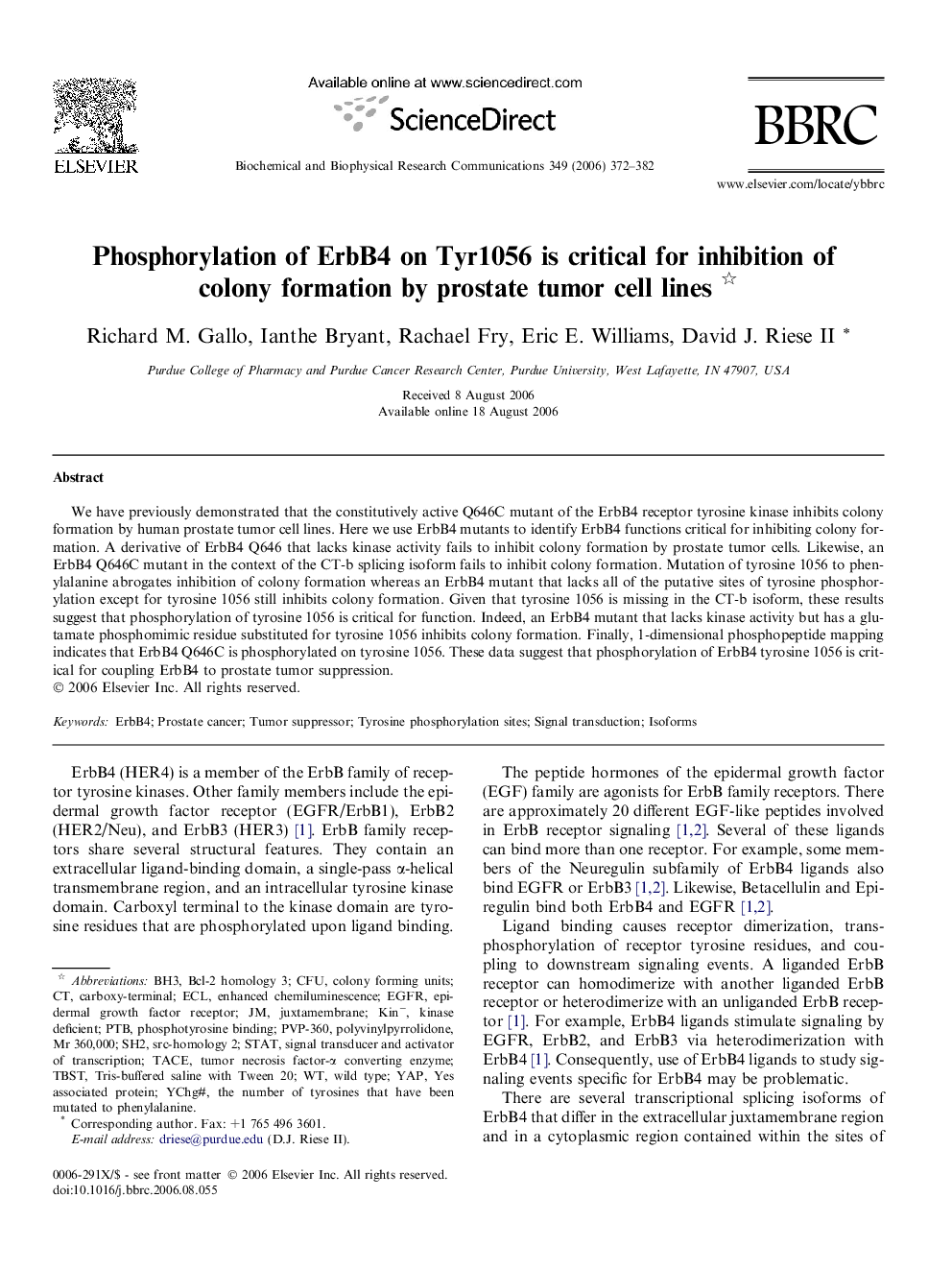| Article ID | Journal | Published Year | Pages | File Type |
|---|---|---|---|---|
| 1939094 | Biochemical and Biophysical Research Communications | 2006 | 11 Pages |
We have previously demonstrated that the constitutively active Q646C mutant of the ErbB4 receptor tyrosine kinase inhibits colony formation by human prostate tumor cell lines. Here we use ErbB4 mutants to identify ErbB4 functions critical for inhibiting colony formation. A derivative of ErbB4 Q646 that lacks kinase activity fails to inhibit colony formation by prostate tumor cells. Likewise, an ErbB4 Q646C mutant in the context of the CT-b splicing isoform fails to inhibit colony formation. Mutation of tyrosine 1056 to phenylalanine abrogates inhibition of colony formation whereas an ErbB4 mutant that lacks all of the putative sites of tyrosine phosphorylation except for tyrosine 1056 still inhibits colony formation. Given that tyrosine 1056 is missing in the CT-b isoform, these results suggest that phosphorylation of tyrosine 1056 is critical for function. Indeed, an ErbB4 mutant that lacks kinase activity but has a glutamate phosphomimic residue substituted for tyrosine 1056 inhibits colony formation. Finally, 1-dimensional phosphopeptide mapping indicates that ErbB4 Q646C is phosphorylated on tyrosine 1056. These data suggest that phosphorylation of ErbB4 tyrosine 1056 is critical for coupling ErbB4 to prostate tumor suppression.
